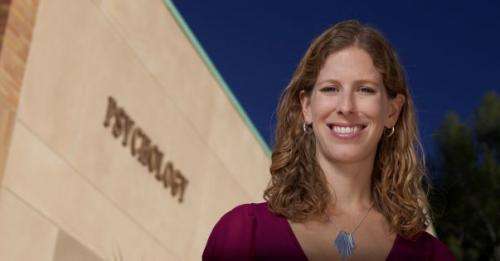Waiting for uncertain news is easier for some people than for others

(Medical Xpress)—Waiting for uncertain news, such as the outcome of a job search or medical test, is easier for some people than others. For the first time, University of California, Riverside psychologists have identified when and for whom waiting periods are most difficult, findings that may help in developing coping strategies.
Researchers know relatively little about the universal experience of awaiting uncertain news, according to Kate Sweeny, associate professor of psychology, and Ph.D. student Sara E. Andrews.
"Unlike coping with bad news, which, though painful, has the clear goal of identifying ways to improve a bad situation, coping with uncertainty requires people to manage hopes and dreams, fears and worst-case scenarios, all without the simple certainty of knowing exactly with what they are coping," Sweeny and Andrews wrote in "Mapping Individual Differences in the Experiences of a Waiting Period," published in the Journal of Personality and Social Psychology. "Waiting may be more anxiety-provoking than actually facing the worst-case scenario."
In an earlier publication Sweeny developed the uncertainty navigation model to provide a theoretical basis for identifying and evaluating common strategies people employ during difficult waiting periods. Coping strategies the model identified include: distraction (redirecting attention to other activities), proactive coping (preparing for the possibility of bad news), expectation management (bracing for the worst, hoping for the best), benefit finding (embracing the benefits of an unpleasant outcome), and distancing (creating psychological space between oneself and a distressing event).
The current paper examined individual differences in the experience of waiting, studied the relationships among anxiety, rumination and use of uncertainty navigation strategies, and mapped a waiting period by identifying the typical time course of anxiety, rumination and use of coping strategies as well as individual differences in those trajectories.
The researchers studied 50 law school graduates as they waited for results of the California Bar Exam in 2011. Participants were surveyed before they took the test, four times during the four-month waiting period, and soon after receiving their results.
Sweeny and Andrews focused on traits that reflect people's comfort with uncertainty, traits that reflect people's orientation toward future outcomes (general optimism and pessimism), and self-esteem.
"Waiting for important news is a challenging endeavor, and our findings suggest that waiting only gets more difficult as the moment of truth draws near. Anxiety increases, ruminative thoughts make it difficult to concentrate, energy is channeled toward emotional regulation and people begin to expect the worst," the psychologists wrote. "Our findings begin to identify a metaphorical equivalent to the habits of highly successful people (here, successful at waiting without overwhelming anxiety and rumination), which is an important step for both understanding what makes waiting so difficult for many people and making it easier."
Among their findings:
- Time seemed to pass more slowly in the early part of the waiting period and sped up during the final months.
- People were most anxious and ruminated most at the outset of the waiting period, shortly after taking the exam, and as the moment of truth drew near at the end of the waiting period.
- Feeling good about the future and being comfortable with uncertainty are far more important than feeling good about oneself during a difficult waiting period.
"Some people have an easier time waiting than others," Sweeny said. "In terms of developing coping strategies, people could try to emulate the type of person who has an easier time, namely by embracing an optimistic outlook and developing a degree of comfort with uncertainty.
















